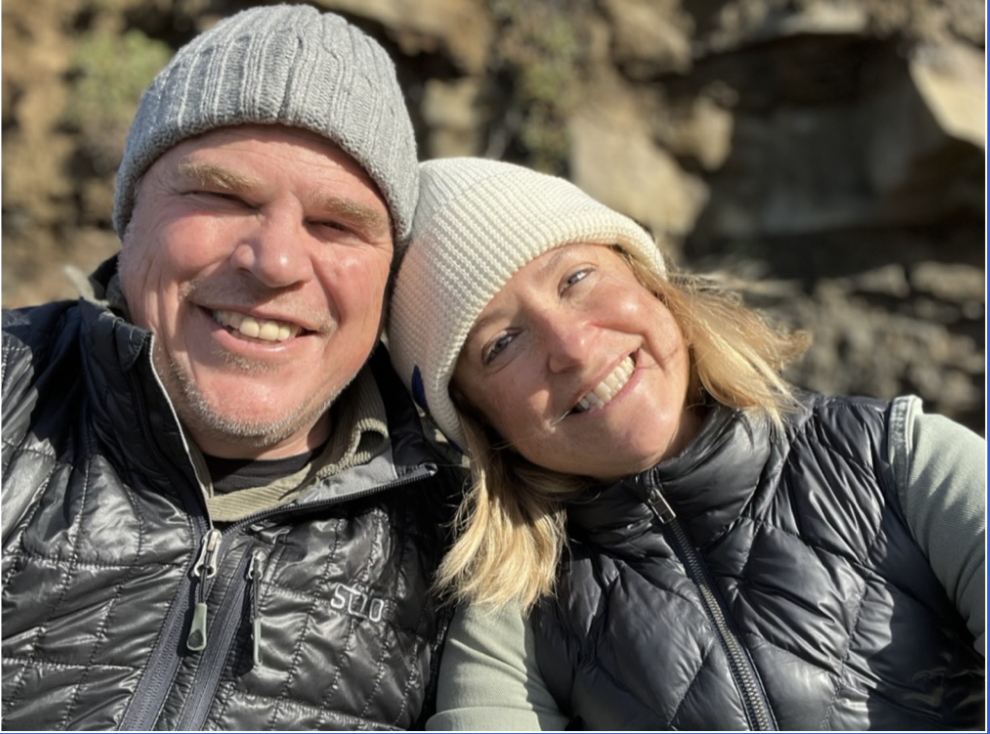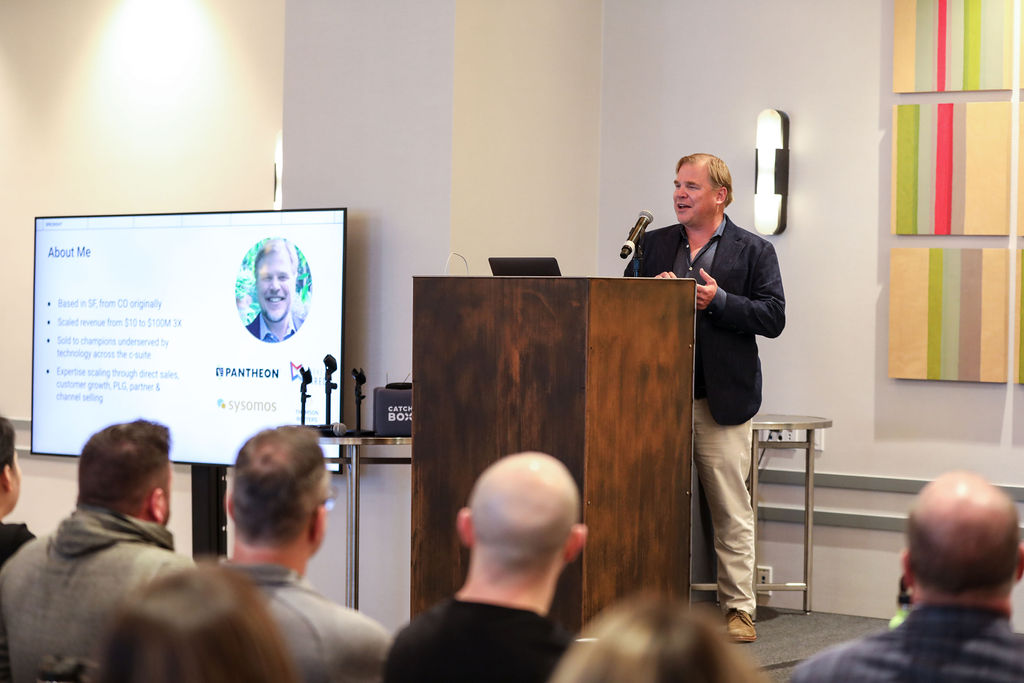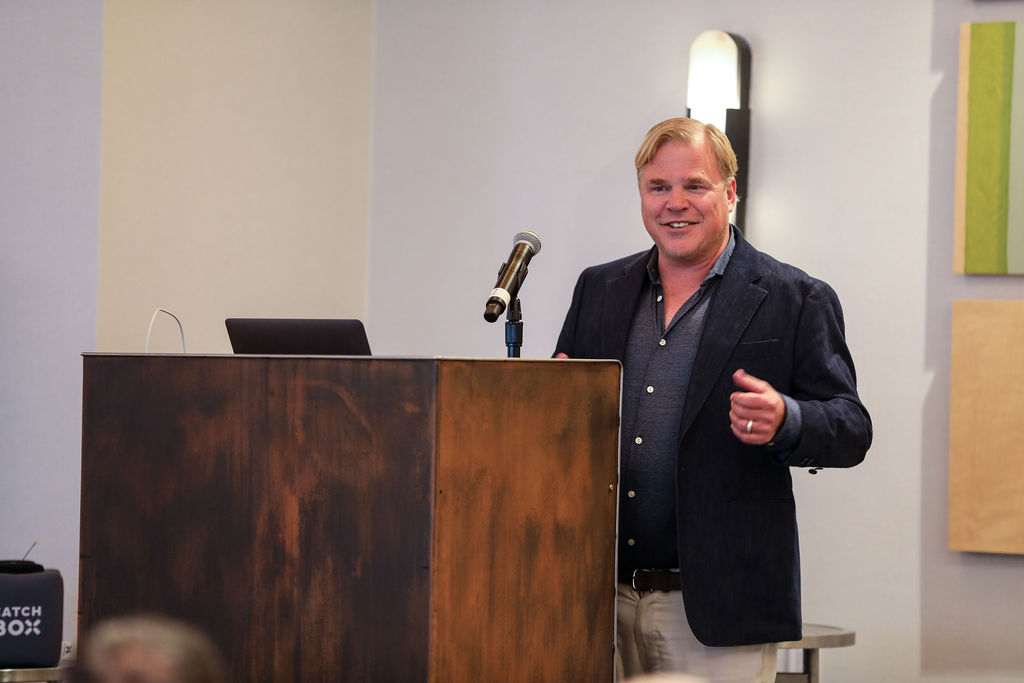Introduction
Darin Wolter, based in the Bay Area, recently joined Specright as Chief Revenue Officer. In his role, he oversees sales, customer support, sales, sales engineering and operations, and all initiatives tied to revenue. His position also involves igniting positive interactions with new customers, onboarding them successfully, and making them wildly successful.

Outside of work, Darin enjoys anything outside, spending a lot of his time hiking, taking his dogs to the beach, and surfing. He loves spending time with his wife, friends, and family. Although he doesn’t have kids of his own, being an exceptional uncle is a top priority to him, making sure he is always there for his 5 nieces and nephews.

Darin’s roles before Specright
“Prior to joining Specright, I spent 25 years in sales and revenue leadership. I started out in direct sales as an account executive and from there I started building sales teams, working to scale those teams at aggressive growth companies.
I’ve worked at a couple of big publicly traded companies in my life. But really, most of my career has been starting at companies like Specright, about $10 million in revenue, and scaling those companies to $100 million in revenue or north of that.
I learned early that a good salesperson can help their customers if they do it the right way, and I quickly found that I enjoyed that. Throughout my career, I have had the opportunity to lead different teams and I found that I could be kind of a teacher in that way.
As I progressed, in my career, I began working to build companies, or even categories, like Specright. I loved the idea of starting small and growing, doing something with a neat group of people that others may have doubted you could do. Startups are a really fun place to get the best out of people, helping them grow and learn really fast.”
Why Darin chose Specright
“Many venture capital-backed companies and startups are focused on building to become an IPO or to sell, it’s about getting options and getting rich. I think that’s the wrong way to build a company. The most successful and enjoyable experiences I have had are at companies that focus on the customers, the employees, and the communities that they serve.
In the case of Specright, this means the supply chain and packaging industries, but I also think that means the communities we work in like Tustin, and Chicago where we have offices, as well as the relationships with Cal Poly and Michigan State, it’s all a part of the community. If you focus on every stakeholder, investors are likely to do better as well.
As I met with Matthew Wright, we were very like-minded in this, we had the same approach. He’s very passionate about this idea of a spec-first approach. He really wants to see his customers thrive and see companies using this 20 or 30, or however many years down the line. He genuinely wants everyone who works at Specright or interacts with it to have a really positive wonderful experience. That is probably what got me most interested in Specright.
Secondly, I think the supply chain is the last huge industry to go through a digital migration. It’s happened in finance, marketing, and sales, but in SaaS it hasn’t, and it could really benefit from tools like Specright; I think that’s really exciting.
It’s going to develop around corporate sustainability and compliance. The mission statement of Specright and the idea that we could eliminate, 10% of the world’s waste is incredible. I genuinely love being part of a company that I think is going to have a positive impact on the world.”
What excites Darin about being part of Specright’s journey
“The global supply chain is fascinating. It’s all the products we use and the food we eat. Most people aren’t thinking about how an iPhone is made, how food gets to their table, or how ingredients are tested and safe. The fact that there’s a whole labyrinth, this whole world that we interact with every day, is really interesting for me to learn about.
In my previous experience, I’ve always worked for companies or industries that have broad ecosystems and partner networks, I think Specright has a real opportunity to create and nurture an amazing ecosystem and that’s really fun. When we get partners, we have the opportunity to positively affect their clients and then their clients and that’s a fun part of business.

Specright can have a global impact and global reach. I genuinely believe we’ll do good in the world. With the teams I work with, I love seeing them accomplish things that they didn’t know they could do. You can live in a world without cable, TV, or computers, you could live in a world without a phone but you cannot live in a world without the supply chain.”
Darin on the adoption of a spec-first approach
“The supply chain, largely, still needs to go through digital migration, getting off of paper and spreadsheets and into the cloud. There still needs to be a lot of, bringing people along sharing ideas, and having to lead them along the way.
Most people aren’t waking up in the morning, saying, oh, my gosh, I need a spec-first approach for data management. But they might wake up and think my job sucks, but I don’t know why. At Specright we have to tease out some of their pain and prescribe a solution they may not fully get or understand and that takes a bit more work.
I think COVID-19 really accelerated the idea of digital transformation for many companies. And now Colgate Palmolive and Kraft and all these other brick-and-mortar stores are going to have to adapt these types of practices if they want to survive.
A lot of this is also going to be accelerated by rules and regulations. Previously we saw companies wanting to be sustainable because they wanted to do good or they wanted to because their customers were looking for it but going forward many companies are going to be compelled by the law.”
Challenges of Specification Data Management in today’s world
“I think many people are not yet compelled to implement a spec-first approach because they have a hard time thinking about doing their job in a different way. They know their job is hard, but many have just accepted this as the reality.
It’s like, trying to get a cab before Uber, it was tough. You walked out of a bar onto the street, and you’re like, hey, there’s not one car on this street – we all just kind of accepted it sucked. Then Uber came along and everyone accepted there was a better way of doing it. For Specright we just have to show the market that there is a better way of doing Specification Data Management.”
Explore More Blogs
Get Started
With Specright’s Solution Suite, you can digitize, centralize, and link your specification data to drive efficiencies, intelligence, traceability, and collaboration within your organization and across your supply chain network.



